Pennsylvania Requires Additional Safety Measures for COVID-19 in the Workplace, Including Mandatory Masks for Employees

Pennsylvania Requires Additional Safety Measures for COVID-19 in the Workplace, Including Mandatory Masks for Employees
April 15, 2020
The Pennsylvania Department of Health issued an Order effective April 15 requiring social distancing, cleaning, use of masks for employees and visitors, and other mandatory mitigation protocols for businesses authorized to maintain in-person operations during the ongoing COVID-19 emergency (except for healthcare providers). This Order expands on the Department of Health’s prior order effective April 6 that required building safety and cleaning measures for certain businesses. Employers have only a few days to comply with the April 15 Order, as it becomes enforceable on April 19, 2020 at 8:00 PM.
Among other things, the Order requires employers to “make it a mandatory requirement to wear masks while on the work site, except to the extent an employee is using break time to eat or drink, in accordance with the guidance from the Department of Health and the CDC.” This means that employers must now provide masks and/or approve use of masks obtained or made by employees in accordance with Department of Health guidance. Simply, the Governor’s prior recommendation to wear masks in Pennsylvania is now a mandate for employers. As McNees reported previously, employers should consider how these requirements interact with OSHA standards.
In addition, the Order requires employers to implement protocols for managing exposure to confirmed or probable cases of COVID-19, and other mitigation and cleaning measures to protect employees and the public from exposure. After discovering an exposure to a probable or confirmed case of COVID-19, the Order requires businesses to implement temperature screenings before employees enter the premises prior to starting work, and employees with a temperature of 100.4 degrees Fahrenheit or higher must be sent home. The Order prescribes procedures for closure, cleaning, and notification to address such situations. Employers are also encouraged to implement liberal paid time off policies to those employees who are isolated at home.
The Order requires businesses to adhere to several other safety measures, such as the following:
- Establishing protocols to be immediately executed upon discovery that the business has been exposed to a probable or confirmed case of COVID-19;
- Staggering employee start and stop times when practicable to prevent gatherings of large groups;
- Providing a sufficient amount of space for employees to maintain social distancing while on breaks or meal times (including seating so as to avoid employees facing one another);
- Staggering employee break times;
- Conducting meetings and trainings virtually and, if a meeting must be held in person, limiting it to the fewest employees possible, not to exceed 10;
- Providing employees with regular access to handwashing with soap, hand sanitizer, and disinfectant wipes;
- Ensuring the facility has sufficient personnel to perform all measures effectively to ensure safety of the public and employees;
- Ensuring the facility has sufficient personnel to control access, maintain order, and enforce social distancing of at least 6 feet;
- Prohibiting non-essential visitors from entering the premises; and
- Ensuring employees are made aware of these required procedures by communicating them in their native or preferred language and in English (or otherwise by a method allowing them to understand).
Businesses that “serve the public within a building or a defined area” are required to implement additional measures, such as the following:
- Require all customers to wear masks on premises and deny entry to individuals not wearing masks, unless the business is providing medication, medical supplies, or food, in which case it must provide alternative pick-up or delivery methods;
- Conduct business by appointment only and to the extent that is not feasible, limit occupancy to no greater than fifty percent of occupancy;
- Alter business hours to ensure sufficient time to clean and/or restock;
- Install shields or other barriers at registers and check-out areas;
- Encourage use of online ordering by providing delivery and outside pick-up;
- Designate a specific time for high risk and elderly persons to use the business at least once every week if there is a continuing in-person customer facing component;
- For businesses with multiple check-out lines, use only every other register or fewer and rotate hourly to clean;
- Schedule handwashing breaks hourly for employees; and
- Wipe down carts and handbaskets before becoming available to a new customer.
Employers should carefully review the Order and adjust operations quickly to ensure compliance by April 19, including with written policies, instructions, and training where appropriate.




